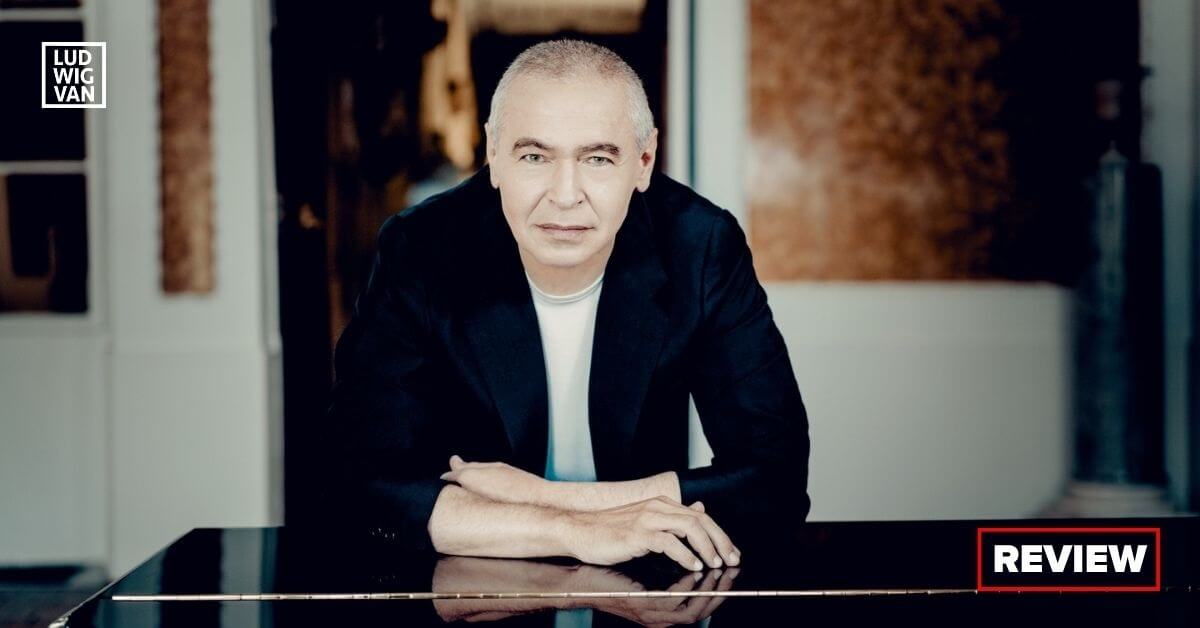
All Fryderyk Chopin program: Ivo Pogorelich, piano. Koerner Hall, Apr. 24, 2022
All Chopin: so it said on the printed program. While listeners of an orthodox bent might question the accuracy of that description, no one could deny that what we heard in Koerner Hall on Sunday afternoon was all Ivo Pogorelich. More than 40 years after his Toronto debut, this Croatian pianist remains one of a kind.
Polarizing? I hesitate to add the epithet, given the profound quiet that prevailed in the hall while he played and the roof-shaking response that greeted him when he was done. Critics might spar over the merits of Pogorelich’s music making, and debate the ups and downs of his career. People who pay to hear him seem to regard the money as well spent.
The recital of about two hours might have taken 95 minutes in the hands of an artist less inclined to probe every bar for its expressive potential. Tempos were slow not for the sake of slowness, but to make the inner recesses of the music accessible to the ear.
Not that there was anything like a metronome ticking on stage. Tempo is itself an element of musical expression and subject to change without notice, as Pogorelich reminded us in the Barcarolle Op. 60, which got the program off to a mesmerizing start. Not many pianists can increase tension by applying the brakes to a pace that is already on the leisurely side; or capture the complete attention of a listener by reducing the pulse to the edge of nonexistence, as in the Largo of the Sonata Op. 58.
It would be impossible to catalogue all the stretches and compressions, inverted balances, booming bass lines, prolonged rests and fiery trills that populated this fascinating recital. The repertoire of effects — I almost wrote special effects — turned the Sonata into a symphony and the Fantasie in F Minor Op. 49 into a tone poem. Yet, Pogorelich had the good judgment not to compromise the rhythmic character of the rousing finale of the former or the martial opening of the latter. And, if the little right-hand cadenza near the end of Op. 49 was stretched to a maddening infinity, well, this masterpiece is not called a “fantasy” for nothing.
Concluding the program as advertised were the Berceuse Op. 57 — a sweetly sung lullaby indeed — and the Polonaise-fantaisie Op. 61, which reached a climax that could be fairly called cataclysmic. Moscow-trained, Pogorelich regards himself as an exponent of the Russian school. He can certainly create an impressive sonority.
There were two encores, inaudibly announced from the stage. I recognized the first as the Prelude Op. 45. Possibly something more rhythmically engaging might have made a better send-off. We had heard quite a bit of Chopin in his languorous and poetic mode.
But again, was it all Chopin? Does a Pogorelich interpretation constitute a departure from, or re-engagement with, the music as notated? I am not sure it cannot be both. At any rate, most of his stylistic migrations are from accepted convention, not the score as such. An expressive direction like calando or smorzando does not come with prescribed limits.
As the reader might have surmised by now, it was quite an afternoon, incorporating nonmusical elements of interest. Dressed in traditional evening tails and bowing solemnly from the waist, Pogorelich looked like a figure from another age.
He played from sheet music — remarkably, as these selections make up his only recital program of the season. Some of those pages (which he carried with him) looked a little threadbare. Stage breezes during the Prelude necessitated quick action from the page-turner.
Well, why not use the music? Pogorelich certainly finds new things in it.
#LUDWIGVAN
Get the daily arts news straight to your inbox.



